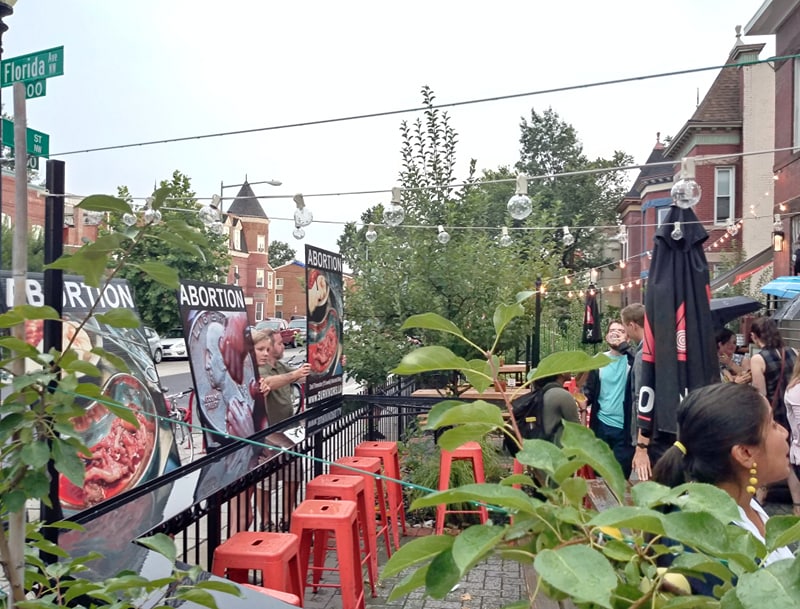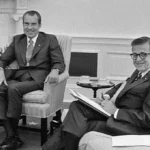Blog Post
From the halls of Congress to pro-life protests in Washington, D.C.
By Jonathon Van Maren
A short update from Washington, DC. Read the rest of my coverage of the National Conservatism conference here.
The conference closed with a speech by freshman Missouri Senator Josh Hawley, who the conference organizers referred to as “our man in the senate.” Hawley has already earned a reputation as a different sort of conservative, and he began by stating that it is time we started focusing once more on first things—and that our current political class had miserably failed the American people (a very popular theme on all sides these days.) Specifically, he noted, they “denigrate the common loves” and they have attempted to create a new state cut off from our history, beyond borders and beyond belonging. They have bequeathed to us “the curse of faction.”
The great divide today, Hawley said—and this was a very popular idea at this conference—is not between red and blue, but between the great American middle and the political projects of the elites. Our leaders often consider themselves citizens of the world first, and they prioritize social change over roots and tradition. This class, which believes in relentless immigration, open borders (or at least no meaningful borders), and a global consumer economy producing cheap goods with cheap labor and sees globalization as a moral imperative, can be referred to as “the cosmopolitan consensus.” It is hurting America, and it has made the cosmopolitan class an aristocracy.
Hawley had plenty of examples: Snooty academics who hate America (an easy target at any right-wing gathering). A declining middle America, plummeting birthrate, decreasing life expectancy, and erosion of public confidence in American government. Nobody, he said, listens to the middle. On the Left, muscular multiculturalism and on the Right, globalization and the supremacy of markets. A new kind of conservativism is necessary, starting with a simple statement of fact: “America is not going to become the rest of the world, and the rest of the world is not going to become America.” This received rousing cheers as Hawley declared that the American republic should be based on the common man and woman, with an economy rooted in the worker rather than Wall Street. We need to invest in research that explains what is going on in the heartland, encourage capital investment, champion new skills and jobs training, and prioritize American workers over cheap goods from abroad.
More than that, marriage should be prized and not penalized. Our children should be taught who we are as a people without apology. Communities of faith should be protected because religion has always fueled the republic. The kind of people who built America, Hawley declared, are still there: those who help their neighbors, staff the fire departments, get up early, and go to bed late—those who work with a “quiet grace.” To sum things up, Hawley even threw in a few lines of Macaulay’s famous poem: “For how can men die better, than facing fearful odds, for the ashes of his fathers, and the temples of his gods?” Our best days are ahead of us, he concluded, if we stand for hearth and home. “Who will stand and guard this bridge with me?”
The standing ovation he received seemed to indicate that people were enthusiastic about the possibility that he might be right about the best days being ahead, although I’m pretty skeptical about that. On the other hand, as Golda Meir once said, our secret weapon is no alternative. Yoram Hozany closed the conference by urging everyone to stay in touch, join the Edmund Burke Foundation, and become a part of the project to replace the conservative consensus with something entirely new. The conference had been billed as a historic event, one that would be looked back on as the moment when things began to change on the Right. It will be interesting to find out if the conference achieved that. There were a lot of great discussions, some fantastic speeches, and certainly some good ideas, but turning that into a movement that is actually headed somewhere is a rather herculean task.
For the rest of this week, I’m speaking at a pro-life training camp in Maryland, and a couple of my friends and I also had the opportunity to watch Congress vote on impeachment from the public galleries (we also met Representative Dan Crenshaw, the popular pro-life Congressman who sports an eyepatch as a result of a wound received in Afghanistan.) The thing that struck me as I scanned the clusters of Congresspeople speaking in little knots around the room—I spotted Nancy Pelosi towards the back, Alexandra Ocasio-Cortez flapping her hand about, and Joe Kennedy leaning on a desk, looking very much like a Kennedy—is that the chamber is far smaller than I’d imagined. On the annual TV broadcast of the State of the Union, it looks huge. Seeing it for myself, however, the word “crowded” sprang to mind. Following that, we headed down to where the pro-life camp attendees were protesting a pub that was launching a beer and donating the proceeds to the DC Abortion Fund.
From the air-conditioned ballroom at the Ritz-Carlton where right-wing elites condemned the other elites, to the elected officials on Capitol Hill, to a bunch of activists outside a bar protesting abortion. I’d say that about sums up the spectrum of the conservative movement.








